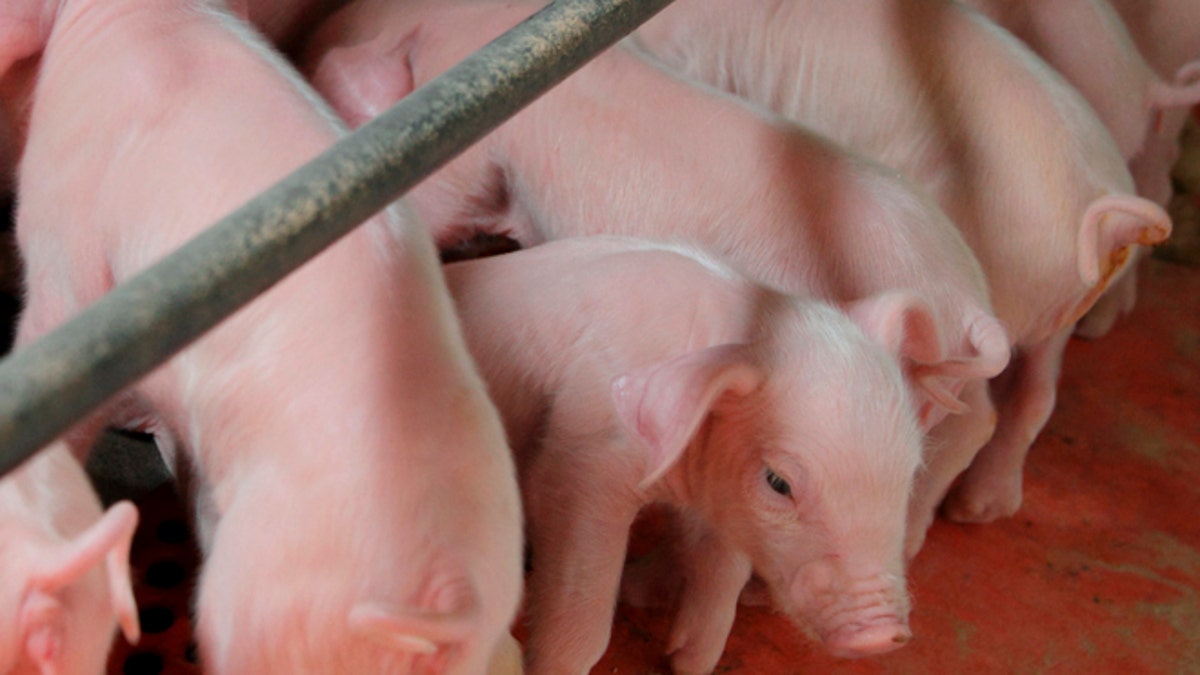
Newborn piglets suckle at Whiteshire Hamroc farm in Albion, Indiana March 16, 2012. The animals here at the Whiteshire Hamroc farm have been bred for one purpose: to be flown halfway around the world, on a journey fueled by China's appetite for food independence. In a country where pork is a culinary staple, the demand for a protein-rich diet is growing faster than Chinese farmers can keep up. While Americans cut back on meat consumption to the lowest levels seen in two decades, the Chinese now eat nearly 10 percent more meat than they did five years ago. Picture taken March 16, 2012. To match INSIGHT USA-CHINA/FOOD REUTERS/John Gress (UNITED STATES - Tags: FOOD AGRICULTURE BUSINESS ANIMALS) - RTR30Z07 (Reuters)
Confirmed cases of a deadly pig virus spreading across the U.S. Hog Belt jumped by 215, its highest weekly increase since it was discovered in the United States in April 2013, according to the USDA's National Animal Health Laboratory Network (NAHLN).
Porcine Epidemic Diarrhea virus (PEDv), which causes diarrhea, vomiting and severe dehydration is transmitted orally and through pig faeces. While older pigs have a chance of survival, the virus kills 80 to 100 percent of piglets that contract it.
The total number of confirmed cases has increased to 2,692 in 23 states as of the week ended January 25. Nearly 40 percent of the cases, 1,006, were confirmed in Iowa, the top U.S. pork producing state.
As defined by the USDA, each diagnostic case could represent multiple animals at either a single farm site or several locations. The USDA's NAHLN released its latest PEDv data on Wednesday. (here)
There are no official figures for pigs lost to the PEDv - which does not affect humans - but up to 4 million pigs may have died from the virus, according to industry analyst estimates. Additionally, the virus was confirmed in Canada last week.
PEDv has spread to a fourth farm in the Canadian province of Ontario, the provincial government said on Wednesday, despite the hog industry's efforts to stop it by disinfecting delivery trucks and clothing used on farms.
PEDv has forced the U.S. hog industry to increase its biosecurity measures and has fueled concerns hog supplies will slump in the spring and summer.
